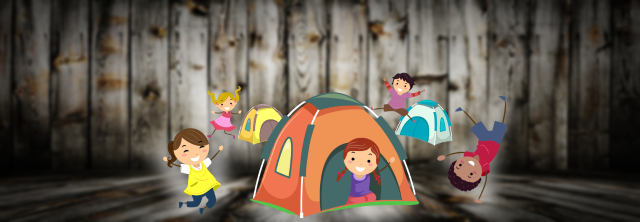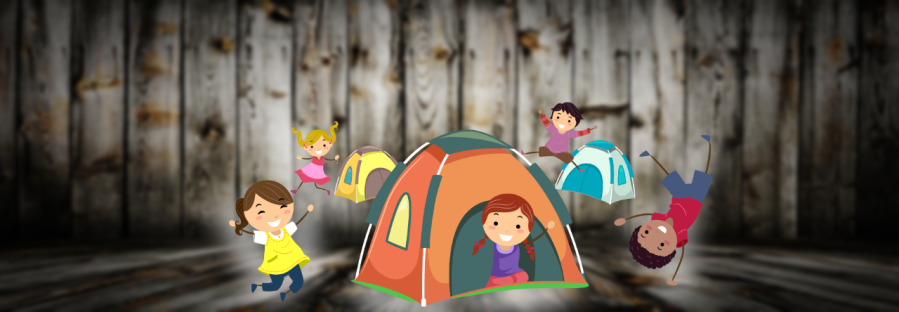
Camping is a wonderful way to connect with nature, unwind, and enjoy the great outdoors. Whether you’re camping in a tent or an RV, following proper camping etiquette ensures a positive experience for everyone. Here’s a detailed guide to help you camp responsibly and courteously.
1. Respect Quiet Hours
Why: Quiet hours, typically from 10 PM to 7 AM, ensure everyone can enjoy a good night’s sleep. Noise pollution can disrupt the natural ambiance and disturb the peace and tranquility that campers seek.
- Tip: Keep noise to a minimum during these hours. Use low voices and avoid loud music or activities. If you’re arriving late or leaving early, do so quietly to avoid waking others.
2. Leave No Trace
Why: Preserving the natural beauty of camping areas is essential for wildlife and future campers. Leaving no trace helps protect the environment from human impact.
- Tip: Pack out all trash, dispose of waste properly, and leave your campsite as you found it (or better). Avoid disturbing plants and wildlife. Use biodegradable products when possible and stay on designated paths to prevent soil erosion.
3. Be Mindful of Space
Why: Campsites are designed to give everyone their own space and privacy. Crowding can lead to conflicts and reduce the enjoyment of the camping experience.
- Tip: Set up your tent or RV within the designated area of your campsite. Avoid encroaching on neighboring sites and use shared spaces considerately. Respect boundary markers and don’t walk through others’ campsites.
4. Manage Your Pets
Why: Not all campers are comfortable around pets, and wildlife can be disturbed by them. Uncontrolled pets can cause noise, damage, and even pose safety risks.
- Tip: Keep pets on a leash, clean up after them, and ensure they don’t disturb other campers or wildlife. Make sure your pets are well-behaved and not left unattended, especially if they tend to bark or roam.
5. Use Fire Responsibly
Why: Campfires can be a significant safety hazard if not managed properly. They are also a major cause of wildfires.
- Tip: Follow all fire regulations, never leave a fire unattended, and ensure it is fully extinguished before leaving your campsite or going to bed. Use established fire rings and avoid collecting wood from the surrounding area. Avoid putting too much wood in the fire to keep it at a reasonable level. Always keep a bucket of water, a shovel and/or a fire extinguisher nearby.
6. Respect Bathroom Etiquette
Why: Proper sanitation practices are crucial for health and cleanliness. Poor hygiene can spread illness and create unpleasant conditions.
- Tip: Use designated bathrooms when available. If camping in a more remote area, bury waste at least 200 feet away from water sources, trails, and campsites. Use biodegradable soap and pack out used toilet paper and hygiene products if no facilities are provided.
7. Be Considerate with Lighting
Why: Excessive lighting can disturb wildlife and other campers. Natural darkness is a key part of the camping experience.
- Tip: Use only the light you need and opt for low-intensity options like lanterns and headlamps. Turn off lights when not in use. Avoid shining lights directly into other campers’ sites and consider using red lights, which are less disruptive to night vision.
8. Share Amenities Courteously
Why: Shared facilities like showers, water spigots, and picnic tables are for everyone’s use. Being considerate ensures these amenities remain available and pleasant for all.
- Tip: Clean up after using shared facilities and limit your time so others can enjoy them too. Don’t leave personal items in shared spaces and report any issues to campground staff promptly.
9. Follow Campground Rules
Why: Rules are in place to ensure safety and harmony among campers. They help maintain order and protect both the environment and campers.
- Tip: Familiarize yourself with the specific rules of your campground and adhere to them. This includes speed limits, check-in/check-out times, visitors hours and parking, and specific site regulations. Rules regarding fires, waste disposal, and wildlife interaction are especially important.
10. Be Friendly but Respect Privacy
Why: A friendly atmosphere enhances the camping experience, but everyone has different needs for social interaction. Some campers seek solitude and relaxation.
- Tip: Greet fellow campers with a smile or a wave, but be mindful of their privacy and personal space. Avoid intrusive questions and respect signals that indicate a desire for privacy. If you’re socializing with other campers, keep your group’s noise and activity level considerate of others.
11. Store Food Properly
Why: Improper food storage can attract bears and other wildlife, posing a danger to both animals and campers. Wildlife that becomes accustomed to human food can become aggressive or be relocated or even euthanized.
- Tip: Store food in bear-proof containers or hang it from a tree at least 10 feet off the ground and 4 feet from the trunk. Never leave food, garbage, or scented items unattended or in your tent at night. Clean up cooking areas thoroughly and dispose of food waste properly.
12. Consider the Peace and Quiet
Why: Many people go camping to escape the noise and stress of everyday life. Excessive noise, even in day time, disrupts the serene environment that campers seek.
- Tip: Be mindful of your noise level at all times, not just during quiet hours. Avoid loud conversations, music, or activities, especially in the early morning or late evening. Respect the natural sounds of the environment.
13. Use of ATVs and Other Motorized Vehicles
Why: ATVs and other motorized vehicles can create noise and dust, disrupting the camping experience and harming the environment.
- Tip: Only use ATVs in designated areas and follow all regulations regarding their use. Keep speeds low to minimize noise and dust. Avoid riding near campsites, trails, or natural habitats where they can cause damage.
14. Practice Water Conservation
Why: Many campgrounds have limited water resources, and conserving water helps ensure there is enough for everyone. It also reduces the environmental impact.
- Tip: Take short showers, turn off the tap while brushing your teeth or washing dishes, and use biodegradable soap. When washing dishes or yourself, do so at least 200 feet away from any water source to prevent contamination.
15. Plan and Prepare
Why: Proper planning and preparation can prevent many common camping issues, ensuring a safer and more enjoyable experience for everyone.
- Tip: Research the area you’ll be camping in and understand the specific regulations and conditions. Bring necessary supplies and know the weather forecast. Have a plan for emergencies and know the location of the nearest medical facilities and ranger stations.
By adhering to these camping etiquette tips, you contribute to a respectful and enjoyable environment for everyone. Happy camping!
